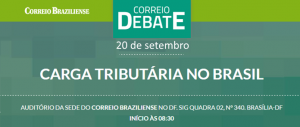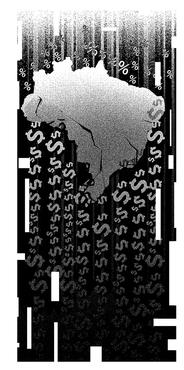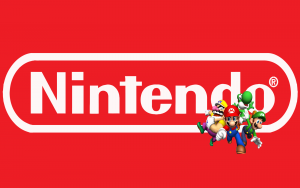The mistake of raising taxes
The tax voracity produces a paradox. As the values increase aiming at a higher collection, the opposite happens.
Whether in times of serious fiscal crisis and recession or even when finances are under control, the Brazilian public manager cannot resist the temptation to make the tax increase permanent. Instead of combating the old vices of waste and swelling of the public machinery and facing the privileges of corporations with strong pressure, it is preferable to sacrifice the taxpayer. No wonder, we have the highest tax burden among emerging countries.
The increase in taxes, however, is a misleading solution. Shot that can backfire. According to calculations by the Brazilian Association to Combat Counterfeiting, the country loses R $ 120 billion a year in tax collection and revenue from companies with pirated products. The biggest loss is with contraband cigarettes: R $ 4,5 billion. Then comes the auto parts sector, with R $ 3 billion; and beverages, R $ 2 billion.
Not by chance, cigarettes and beverages are among the most taxed in the country. In the case of cigarettes, the argument to protect health - in fact a concern that falls to the State - covers the furor of revenue.
But justified health care does not override the free will of the citizen who takes the risk of smoking. And do not leave the habit because of heavy taxation, using contraband cigarettes and contributing to tax evasion. According to the Brazilian Institute of Competition Ethics, the sale of contraband cigarettes in Piauí grew 16% between 2012 and 2015. In Maranhão, the increase was 17%, from 2002 to 2015.
So it is with other products. The tax voracity therefore produces a paradox. As taxes increase, aiming at greater collection, the opposite is true. In several sectors, state interventionism - taxes are part of it - does not produce good results. Who doesn't remember what happened to the computer market reserve? The law created monopolies, high costs for consumers, piracy and technological delays. Without the reserve, prices decreased, thanks to competition. Not to mention the effects in the area of public security, as smuggling is often accompanied by arms and drug trafficking.
As Finance Minister Henrique Meirelles has already stated, Brazil must be able to resolve the fiscal problem without raising taxes. At this point, then, raising taxes would be even more harmful, as experience shows that the measure accentuates the recession. To rekindle the economy, the road is longer. It is necessary to face the privileges of corporations, to convince society of the need for reforms and to combat waste. Undoubtedly laborious. But there is no better alternative.
Source: Jornal O Globo (22/01/2017)






